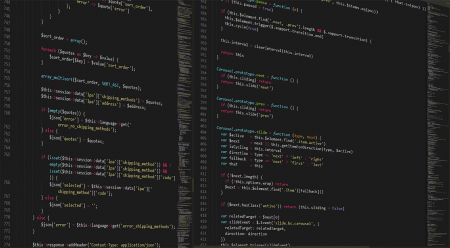Короткий пересказ текста Schools in Britain
Краткий пересказ текста Schools in Britain
Задать свой вопрос1 ответ
Виктор Мизгирев
Education in Britain is compulsory (неотклонимый) for all children between the ages of 5-16.
School-children attend a primary school for 6 years. When students transfer to Secondary School at the age of 11, they do not take any examination, but their reports are sent on from the Primary School.
Secondary School. Most children go to a comprehensive (комплексный) school. Comprehensive means all-inclusive. They admit (позволять) pupils of all abilities. But there are also grammar school and secondary-modern schools.
The pupils have to pass an exam to go there. Grammar school - a school for children over the age of 11, who are specially chosen to study for examinations which may lead to higher education. Secondary-modern school -a schools for children over the age of 11, who are not expected (рассчитывать) to go on to higher study later. All types of secondary schools have the 5-year courses for pupils from 11 years up to the school leaving age.
Pupils in all state schools in England and Wales study 10 main subjects: Core (центральный) subjects: English, mathematics, science; Foundation (основной) subjects: history, geography, a modern language, (art, craft and design), music, information technology, physical education. Religious education is also taught (преподаваться). Attainment (проверочный) tests are given at the ages of 7, 11 and 14, 16. At the end of a 5-year courses, at the age of 16, students sit the General Certificate of Secondary Education exams in as many subjects as possible. At the age of 16 about two-thirds of these pupils leave school and get job or apprenticeships (учеба). About one-third stays on at school until the age of 18, preparing themselves for higher education.
The 6th Form. More ambitious pupils continue to study in the 6th form. They stay on at school for one or two years to prepare themselves for university. They have only three or four main subjects which are necessary to pass to advanced level exams at the age of 18. the school year is divided into three terms with the intervals between them during the Christmas and Easter holidays lasting about two weeks each and the summer holidays which begins rather late and is usually six weeks long. All kinds of out-of-class activities are part of school life in Britain. Students have a lot of opportunities for playing sports, attending different clubs and singing in a choir. Most schools have very good libraries which students use for reference work.
School-children attend a primary school for 6 years. When students transfer to Secondary School at the age of 11, they do not take any examination, but their reports are sent on from the Primary School.
Secondary School. Most children go to a comprehensive (комплексный) school. Comprehensive means all-inclusive. They admit (позволять) pupils of all abilities. But there are also grammar school and secondary-modern schools.
The pupils have to pass an exam to go there. Grammar school - a school for children over the age of 11, who are specially chosen to study for examinations which may lead to higher education. Secondary-modern school -a schools for children over the age of 11, who are not expected (рассчитывать) to go on to higher study later. All types of secondary schools have the 5-year courses for pupils from 11 years up to the school leaving age.
Pupils in all state schools in England and Wales study 10 main subjects: Core (центральный) subjects: English, mathematics, science; Foundation (основной) subjects: history, geography, a modern language, (art, craft and design), music, information technology, physical education. Religious education is also taught (преподаваться). Attainment (проверочный) tests are given at the ages of 7, 11 and 14, 16. At the end of a 5-year courses, at the age of 16, students sit the General Certificate of Secondary Education exams in as many subjects as possible. At the age of 16 about two-thirds of these pupils leave school and get job or apprenticeships (учеба). About one-third stays on at school until the age of 18, preparing themselves for higher education.
The 6th Form. More ambitious pupils continue to study in the 6th form. They stay on at school for one or two years to prepare themselves for university. They have only three or four main subjects which are necessary to pass to advanced level exams at the age of 18. the school year is divided into three terms with the intervals between them during the Christmas and Easter holidays lasting about two weeks each and the summer holidays which begins rather late and is usually six weeks long. All kinds of out-of-class activities are part of school life in Britain. Students have a lot of opportunities for playing sports, attending different clubs and singing in a choir. Most schools have very good libraries which students use for reference work.
, оставишь ответ?
Похожие вопросы
-
Вопросы ответы
Новое
NEW
Статьи
Информатика
Статьи
Последние вопросы
Игорь 14 лет назад был на 8 лет моложе, чем его
Математика.
Два тела массами m1 и m2 находящие на расстоянии R друг
Физика.
В сосуде 4целых одна пятая литр воды что бы заполнить сосуд
Математика.
Двум малярам Диме И Олегу поручили выкрасить фасад дома они разделили
Разные вопросы.
найти порядковый номер 41Э если в ядре 20 нейтронов
Разные вопросы.
в ряду натуральных чисел 3, 8, 10, 24, … 18 одно
Математика.
Предприятие по производству с/хоз продукции на производство затратило 3527000 руб Валовый
Разные вопросы.
Математика, задано на каникулы. ВАРИАНТ 1004
НОМЕР 1,2,3,4,5,6,7,8.
Математика.
Имеются три конденсатора емкостью С1=1мкФ, С2=2мкФ и С3=3мкФ. Какую наименьшую емкость
Физика.
Из точки м выходят 3 луча MP MN и MK причём
Геометрия.
Облако тегов




